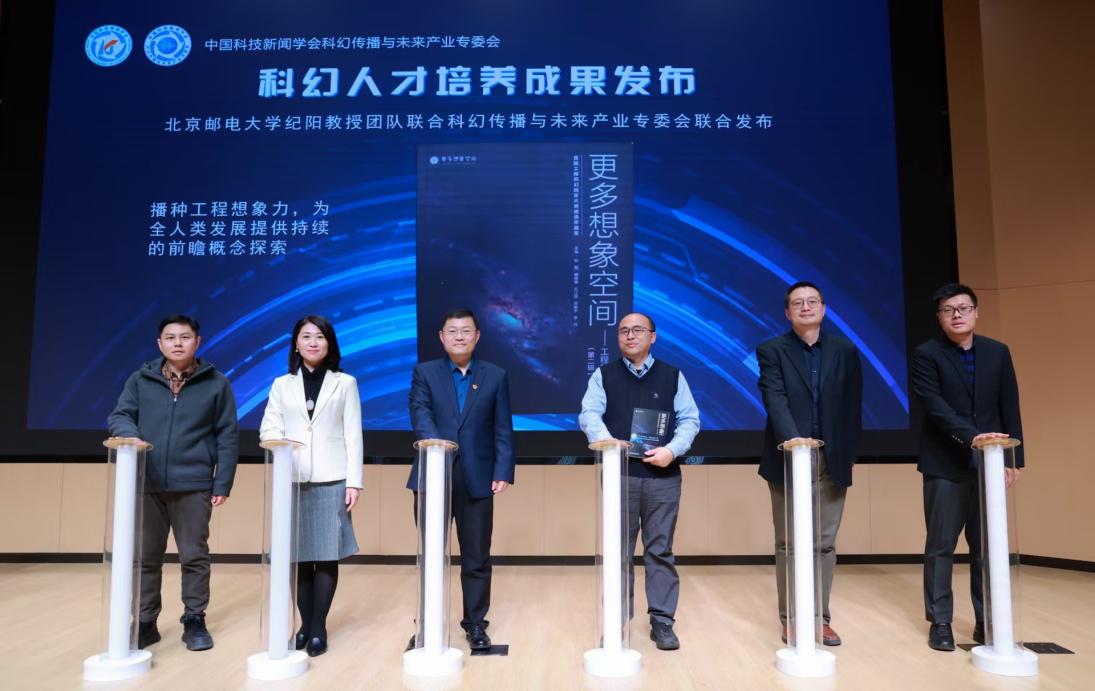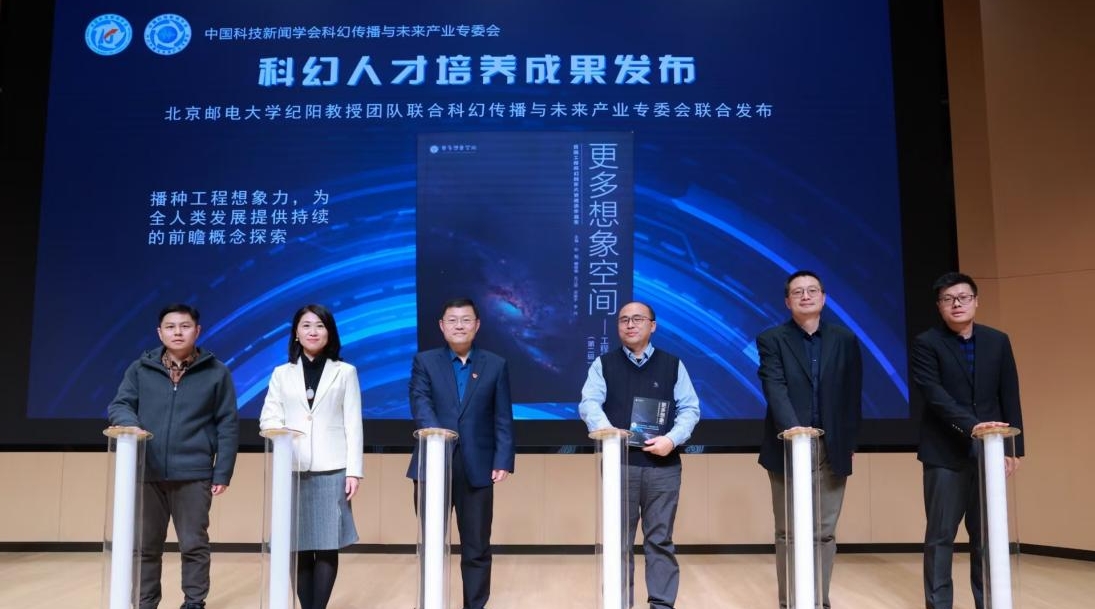Amid China's push to advance innovation and cultivate future industries, the "Sci-Fi Communication Empowering Future Industry Development" subforum of the 2025 China Science and Technology Communication Forum convened in Beijing on Nov. 23. A diverse group of experts from the cultural, media, technological and industrial sectors gathered at the event to discuss pathways for science fiction to support future industrial development.
During her keynote speech, professor Jin Shao, director of the Committee on Sci-Fi Communication and Future Industries under the Chinese Society of Science and Technology Journalism, said that AI has triggered an explosion of infinite imagination and that sci-fi communication in the AI era should be geared toward the innovation demands of society and serve to connect content creation, technological R&D, media communication and consumer experience. In that way, she explained, it is possible to convert imagination and creativity into a practical industrial driving force and support the development of new quality productive forces.
Professor Ji Yang from the Beijing University of Posts and Telecommunications (BUPT) championed engineering imagination education as the essential bridge between science fiction and future industries. He introduced the concept of the "minimum imagination unit," a novel approach that breaks down ambitious sci-fi concepts into small, actionable thinking modules. By using "engineering thought experiments," students learn to transform creative sci-fi ideas into concrete engineering blueprints. This method aims to bridge the gap between humanities and natural science and cultivate interdisciplinary talent.

The achievement of a program for cultivating engineering imagination talent is released at the subforum in Beijing, Nov. 23, 2025. [Photo provided to China.org.cn]
Professor Ji's team released the achievements of its program designed to cultivate engineering imagination talent in collaboration with the Committee on Sci-Fi Communication and Future Industries at the subforum.
Speaking about future imaging, future industries and future education from the perspective of science fiction, Zhang Zhiyi, a researcher at the Chinese Academy of Sciences, said that visual expression and industrialized production of sci-fi content are fundamental determinants of the development level of the sci-fi industry.
Advanced imaging technologies, including virtual production, virtual data assets, real-time engines, virtual reality and socialized production platforms, offer powerful support for unleashing and presenting sci-fi imagination and creativity and for amplifying the influence of the sci-fi industry, Zhang said.
Professor Jia Yunpeng from BUPT discussed the shift of sci-fi imaging from a "watching art" to an "interactive art" in the AI age. He argued that technology equalization will lead to industrial equalization.
Meanwhile, Chen Jun, a professor at Beijing Film Academy, suggested that the deep application of AI-generated content in the creation of sci-fi screenplays, special effects and promotion will foster a collaborative human-machine creative model for the industry.
Lu Xiaodong, researcher at the Graduate School of Education, Peking University, advocated for the inclusion of sci-fi creative writing as a core component of university liberal education, believing that its cross-disciplinary thinking and future perspective are indispensable qualities for innovative talent.
The forum also saw the launch of a sci-fi communication action initiative, appealing to universities and cultural and tech enterprises nationwide to collaborate in building innovation platforms for communicating sci-fi culture and technologies and fostering and displaying new sci-fi IPs.


 Share:
Share: 




 京公网安备 11010802027341号
京公网安备 11010802027341号